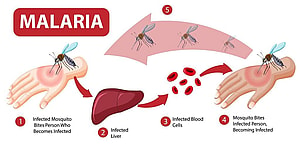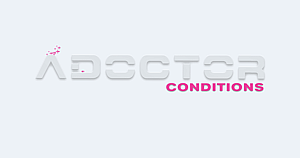
...infection, bleeding, damage to blood vessels or other internal organs, and anesthesia-related complications. Patients may also experience swelling, chest pain, muscle pain, and soreness at the incision site. Conclusion Thoracotomy...

...hip function. Risks associated with hip replacement surgery include the following: Blood clotting – Clots can form in the leg veins following the procedure. To prevent this complication, blood-thinning medications...

...a new person, the parasites are injected into the bloodstream along with the mosquito’s saliva. **Parasite Lifecycle:** Once in the human bloodstream, Plasmodium parasites invade red blood cells and reproduce....

Definition and Overview The liver is one of the largest vital organs in the body. Its main function is to filter the blood that comes from the digestive tract (via...

...on the skin and pricked to elicit a reaction. A positive reaction indicates an allergy to that allergen. * **Blood testing:** Draws blood to measure the presence of specific antibodies...

...surgeon will cut blood supply by tying off the major blood vessels. The bronchus, a major airway leading to the affected lung, is also cut and tied off. The lung...

...form in any part of the body where there are blood vessels. The most common types are those found in the cervix (cervical polyps), large intestine (colonic polyps), sinuses (nasal...

...in the region, including the muscles, nerves, blood vessels, and bones. Due to the complexity of the area, tumours are not easily detected. The area is quite closely connected to...

...autoimmune disease? Is congenital hypothyroidism rare? Other names for congenital hypothyroidism The thyroid is a small, butterfly-shaped gland found in the lower part of the neck, just below the voice...

...is congenital and most patients who have it need to undergo the repair procedure before reaching the age of 25. In its normal flow, blood enters the right side of...







